What is Germany known for? Or better, what should it be known for? With so many interesting facts about Germany, which will come in handy at a party or a quiz? I’ve searched the interwebs for you and found these 60 German facts.
60 interesting facts about Germany to impress your friends with
This post is part of a series of fun facts posts I’m doing for every country I have articles about here on the blog. Given their nature, these posts are research-based and even though a lot of time has gone into them, it’s still possible a mistake has snuck in. If you see something that looks incorrect, please let me know at wanderer [at] wonderfulwanderings.com and I’ll look into it. Thanks!
1. Germany has a population of 83 million, the largest in Europe.
2. There are tons of interesting historical facts about Germany, but the story behind its national anthem stands out. The melody of Deutschlandlied, the German national anthem, was composed by Austrian musician Joseph Haydn. Its lyrics were based on a poem by Heinrich Hoffmann von Fallersleben. However, since 1952, only the third verse of the song is sung because the first two verses had unfortunate associations with the Nazi era.
3. Germany’s largest city is the country’s current capital, Berlin. Before the reunification, Bonn was the capital of West Germany while East Berlin was the capital of the East.
4. The President is the head of state whose duties are primarily representative and ceremonial. The Federal Chancellor acts as head of government and is in charge of executive duties, and is nominated by the President and elected by the parliament or the Bundestag. The Bundestag is elected by the people.
5. The colors of the German flag originated from the banner colors of the Holy Roman Emperor: a black eagle with red claws and a beak set against a gold background.
6. King Heinrich I, the first king of Germany, was crowned in Quedlinburg in 919 A.D. Quedlinburg is now a UNESCO World Heritage site.
7. The most frequently used German surname is Müller.
8. Germans are among the biggest beer consumers in the world with an average of 114 liters of beer per person (2014).
9. There are about 1,250 breweries in Germany. About half of these are found in Bavaria, which produces around 40 varieties of beer and more than 4,000 brands.
10. The Neuschwanstein Castle was built by “Fairytale King” King Ludwig II of Bavaria in honor of composer Richard Wagner.
11. The Zoologischer Garten in Berlin is the oldest zoo in Germany and the largest in the world. It houses 1,500 species and 19,500 animals (2013).
12. Most of the greatest and influential classical composers originally come from Germany – Bach, Händel, Beethoven, Schumann, Mendelssohn, Brahms, Wagner, R. Strauss.
13. The oldest flute made from bird bone and mammoth ivory is about 40,000 years old and was found in Geissenklösterle Cave in the Swabian Jura region of southern Germany.
14. The chalumeau, a single reed woodwind instrument invented by the German Johann Christoph Denner, is the predecessor of the clarinet.
15. In 1836, Drachenfels (Siebengebirge) in North Rhine-Westphalia became the first nature reserve in the world.
16. Germany was the first country to implement Daylight Saving Time (DST) on April 30, 1916, during World War I.
17. The term “ecology” was first used by German zoologist Ernst Haeckel in 1866.
18. Germany ranks third among countries with the highest recycling rate. First is Switzerland, followed by Austria.
19. Johannes Gutenberg invented the printing press. The Gutenberg Bible, one of the rarest and most influential books of all time, was published in Mainz in 1455 and was the first book printed in Western Europe using a movable metal type. You can see the Gutenberg Bible for yourself at the Gutenberg Museum in Mainz.
20. Siemens AG, a multinational conglomerate and the largest engineering company in Europe, had its beginnings with the Siemens & Halske company, which built the world’s first electric tram in 1881 — the Gross-Lichterfelde Tramway.
21. The Zugspitze is the country’s highest mountain towering nearly 3 kilometers above sea level.
22. Ulmer Münster (Ulm Minster) is the world’s tallest cathedral with a height of 161.53 meters (530 feet).
23. The longest German word that was ever published is Donaudampfschifffahrtselektrizitätenhauptbetriebswerkbauunterbeamtengesellschaft. It has 79 letters and I’m not even going to attempt to pronounce it.
24. If you have a sweet tooth, you’ll love this bit of trivia about Germany – It was actually a German who invented gummy bears! In 1922, German confectioner and founder of Haribo, Hans Riegel, came up with the idea of creating sweet fruit-gum bears. The little Gummibärchen, as they were called, were tasty and inexpensive treats, which is why they remained popular even during the Great Depression and until today.
25. Triberg is home to the world’s biggest cuckoo clock with an 8-meter long pendulum.
26. Berlin Hauptbahnhof, Europe’s biggest train station, opened in 2006 in time for the World Cup.
27. The first passenger airline, DELAG (Deutsche Luftschiffahrts-Aktiengesellschaft or German Airship Transport Corporation), was founded on November 16, 1909, in Frankfurt.
28. With an area of 60,000 square meters, KaDeWe (Kaufhaus des Westens) in Berlin is the biggest department store in mainland Europe.
29. Germany remains the largest economy in Europe in 2022.
30. Germany is among the top 5 countries with the most Nobel Prize winners. They have 102 of them, including Albert Einstein.
31. Germans eat bread for breakfast, lunch, as a snack, and for supper. There are more than 300 kinds of dark and white bread and over 1,200 varieties of rolls and other baked goods in Germany. They also have bread museums.
32. Football (soccer) is the top amateur and professional sport.
33. Germany is among the world’s largest car manufacturers, and the most popular ones are BMW, Mercedes-Benz, Audi, Porsche, and Volkswagen.
34. The German Federal Highway System or Autobahn stretches up to 11,000 kilometers into most parts of Germany, and there’s no speed limit on 65% of it!
35. German is among the most influential, popular, and widely taught foreign languages in the world. I know, it isn’t fair.
36. There are over 1,500 kinds of wurst (sausages and cold cuts). The major categories are Rohwurst (fresh and raw), Kochwurst (cooked/boiled), Brühwurst (boiled/scalded) and Bratwurst.
37. You don’t have to pay tuition fees in state-funded German universities.
38. One interesting fact about Germany is how green the country is! About a third of Germany is covered by forests.
39. Prostitution is legal in Germany. Disabled citizens even receive a stipend to pay for sex and there are training centers where prostitutes can get a diploma in “qualified sexual accompaniment and assistance” for disabled people.
40. For a marriage to be valid in Germany, it must go through a civil ceremony at a Standesamt (registry office), which costs anywhere from €30 to €75.
41. Schultüte is an old tradition that’s still being practiced. It’s the tradition that a child gets a huge cone filled with candy, treats, and school materials when he or she enters first grade.
42. You must be able to recognize a child’s gender by the first name according to German law. Weird baby names are usually rejected.
43. Here’s one important bit of German trivia to know before you visit. When ordering beer, showing the thumb means one beer; the index finger means two, and so on. This follows the Western European style of finger counting and is handy to know if you plan to go living in Germany.
44. The beginning of the Christmas tree (Tannenbaum) tradition is credited to Martin Luther who founded the Protestant Reformation.
45. Oktoberfest, the largest and most popular festival in the world that actually starts in September, originated from the horse races that culminated in the wedding festivities of King Ludwig I and Princess Therese of Saxony-Hildburghausen in 1810. The horse races were eventually replaced by agricultural shows.
46. Mattel came up with a Barbie doll version of German Chancellor Angela Merkel, on her 50th anniversary.
47. Germany has vowed to close down all its nuclear plants by 2022 to give way to renewable energy sources.
48. The brand of most taxi cabs in Germany is either Mercedes-Benz or Audi.
49. There are more than 20,000 (!) castles in Germany.
50. The narrowest street in the world, Spreuerhofstraße, can be found in Reutlingen and measures 31 centimeters wide at its narrowest point.
51. The Chancellor’s office in Berlin is referred to as the “washing machine” because of its square shape and round windows.
52. It is not illegal to escape from prison because German law dictates that it is a basic human right to remain free. However, those who assist a prisoner escape won’t go unpunished. (By the way, it’s the same in Belgium!)
53. If you have friends in Germany, you might have heard some random facts about German people. Here’s one – for some reason, Germans watch the 1963 comedy “Dinner for One” on New Year’s Eve.
54. What used to be the longest word –Rindfleischetikettierungsueberwachungsaufgabenuebertragungsgesetz – the name of a law regulating beef testing, was dropped when tests on healthy cattle were no longer needed.
55. Because of its remarkable skyline filled with skyscrapers plus its location by the Main River, Frankfurt was dubbed “Mainhattan” derived from New York’s picturesque Manhattan skyline.
56. Stollen, Germany’s Christmas cake, is filled with dried fruit similar to a fruitcake and flavored with marzipan and other spices with a shape that represents the baby Jesus wrapped in swaddling clothes.
57. The Deutsches Currywurst Museum Berlin is dedicated to the currywurst, a common street food made of hot, crunchy pork sausage cut into chunks topped with a spicy curried ketchup sauce.
58. In 1806, Napoleon defeated the Prussian and Saxon armies in the Battle of Jena-Auerstädt.
59. Hamburg is known as the “Venice of the North” – then again, so is Bruges.
60. The Reichstag Building is home to the German Bundestag, the most visited parliament in the world.
Read more about Germany
If you’re planning to travel to Germany, have a look at my posts about the country for inspiration and practical tips.
So, what do you think, did I miss any facts about Germany worth a spot on the list? I spent quite a bit of time researching these, but chocolate knows I might have overlooked something or gotten something wrong, so feel free to let me know if that’s the case! And of course, you’re also free to share if you liked this post :)
Don’t forget travel insurance
Plan for the best, prepare for the worst. Travel insurance has you covered in case (part of) your trip gets canceled, you get sick or hurt abroad, and sometimes even when your electronics break or get stolen. I always make sure I’m covered every trip I go on.
Don’t have travel insurance yet? Check out SafetyWing. They offer super flexible plans that you can even sign up for while you’re already on your trip. On top of that, they were the first travel insurance to cover COVID, and when I got COVID, they reimbursed all of my expenses without making a fuss. Their customer support team is great and I can personally recommend them.
PIN FOR LATER

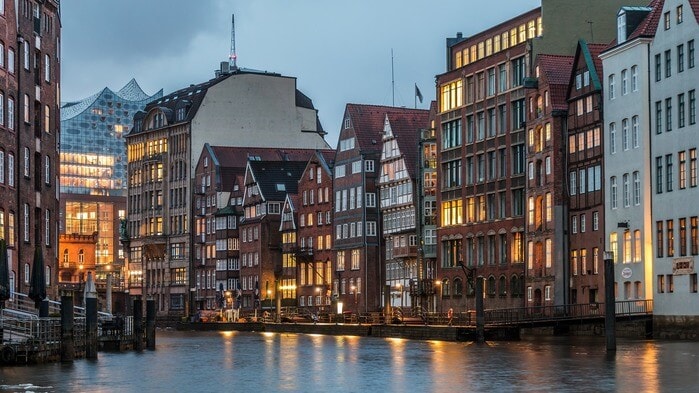
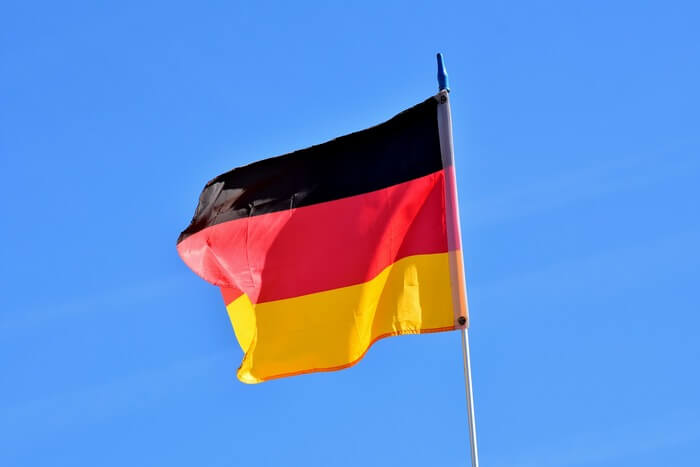
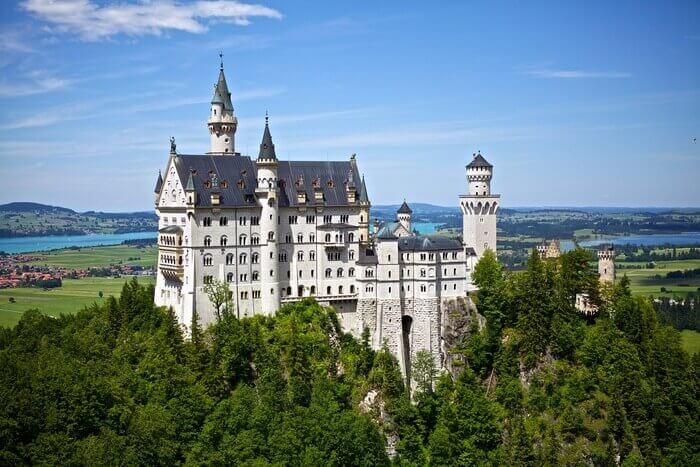
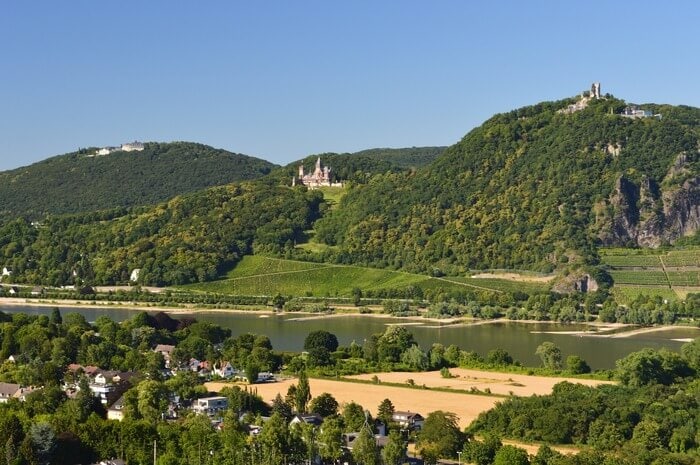
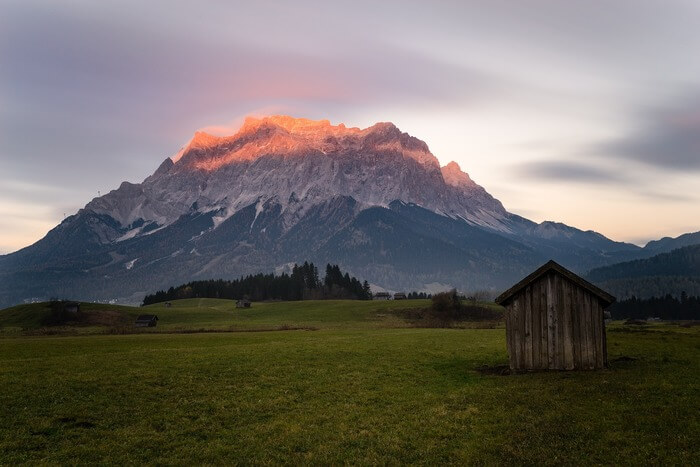
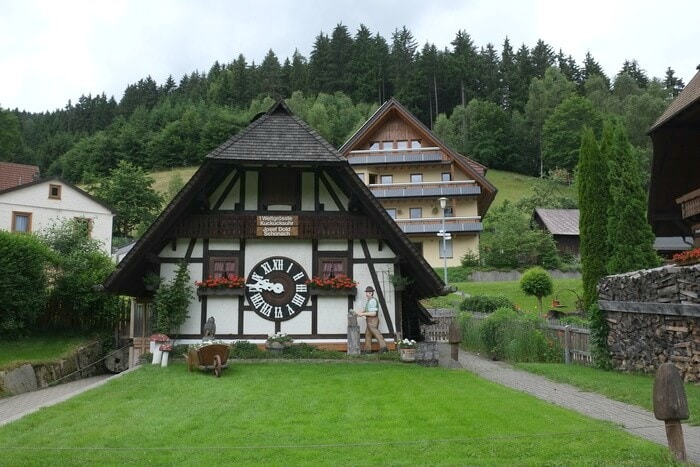
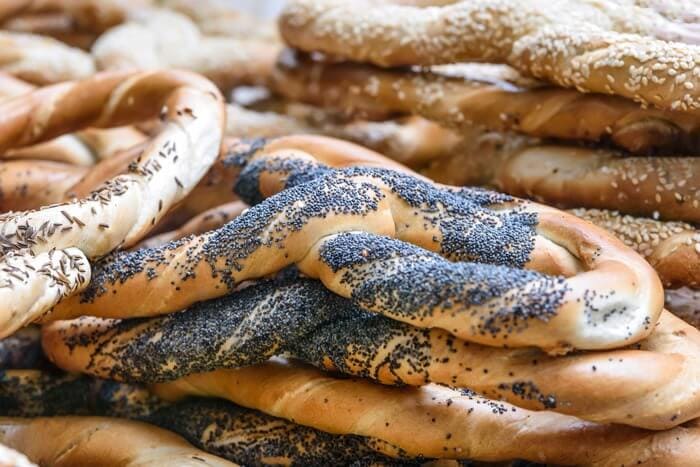


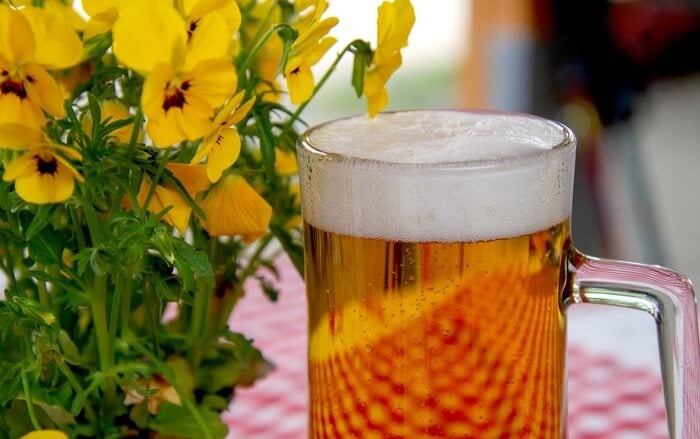
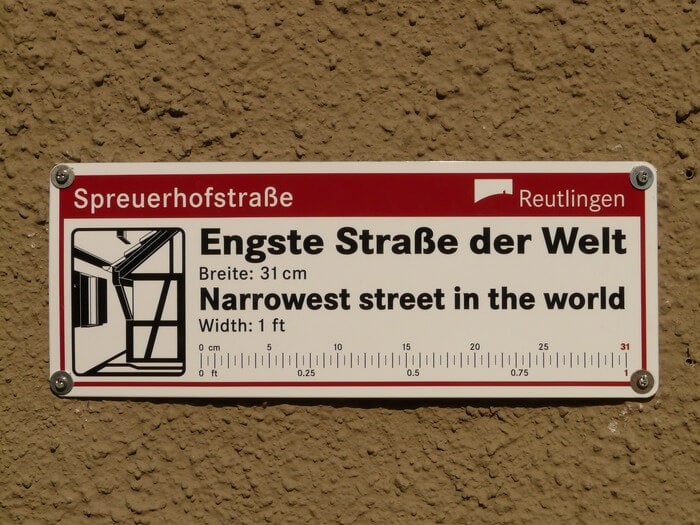
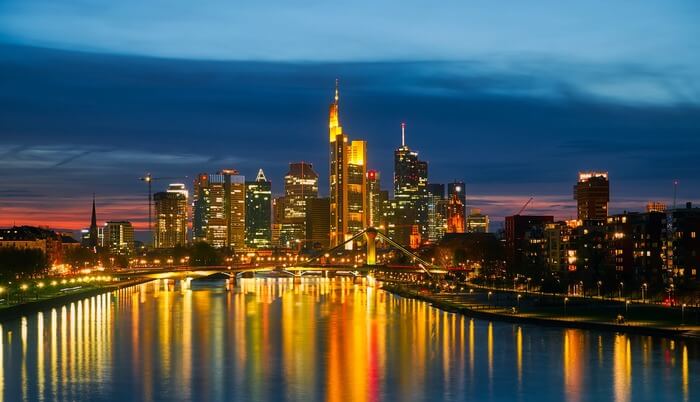
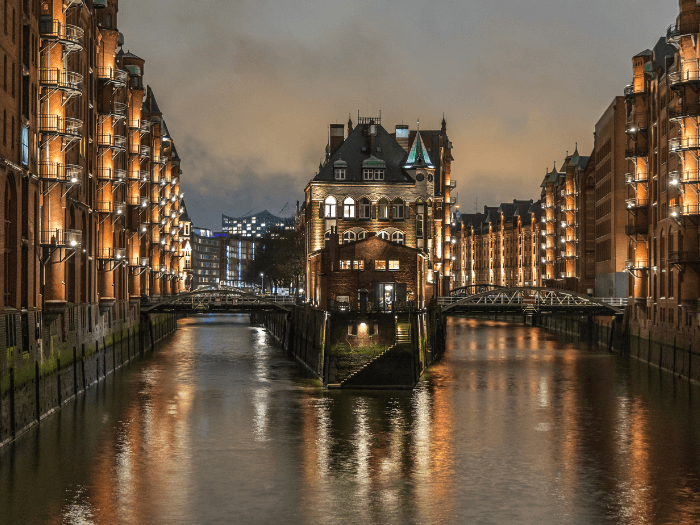
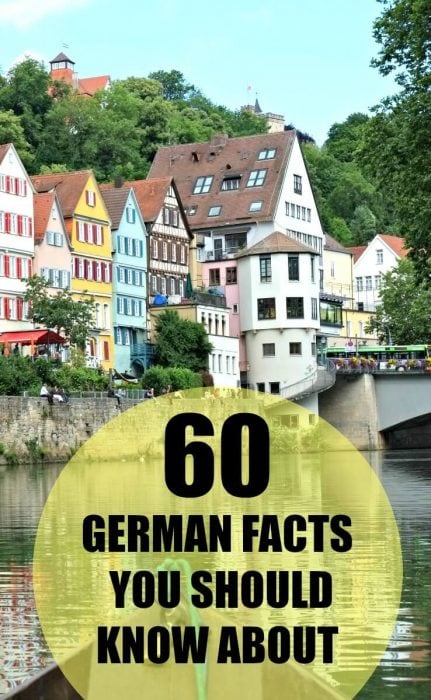
David says
Great post we are hitting Germany next summer and i cant wait!
Sofie says
Cool! Coming to Belgium too then, I hope?:p
Dr. Georg von Tiesenhausen says
I just wanted to add a few more tidbits of information.
1. Germany had the largest economy in the world until about 2013, at which point China overtook Germany. (China has about 1.5 billion people; Germany about 82 million people). Germany is now Nr. 2.
2. The first rocket to enter space, a V2, was launched October 3, 1943 from Peenemünde , located on the Baltic Sea in northern Germany. It was the same type of flight that Alan Shepard made as the first U.S. astronaut into space–a long parabola. Both of my parents worked there during the War. There is now a large stone marking the spot from where that rocket was launched. It’s an awesome place to visit. Also, on the subject of rockets, Hanna Reitsch took a flight in the A1 “Buzz Bomb when the steering kept malfunctioning. She found out what was going wrong and it was corrected. So perhaps she was the first person–a woman–to fly a rocket.
3. Johann Gutenberg actually did not invent the printing press. William Caxton was credited with that; however, Gutenberg invented the first movable metal type press, which enabled printers to rearrange the letters made of lead and use them over and over. Before then, an entire page was carved out of wood and used to print. Each page had to be carved separately. Individual wooden letters could not be reused since they easily broke. Gutenberg came up with the idea of using molten lead, poured into molds. These letters could be reused and then when worn down they would finally be remelted over and over. You can visit the Gutenberg Museum in Mainz, Germany and see an exact replica of his printing press.
4. The idea that the Stollen was like the baby Jesus wrapped in swaddling clothes–well, only if your imagination is really good. heh heh
Sofie says
Hey Dr., thanks so much for adding these!
Art says
Pretty sure the USA still has the largest economy in the world. – https://money.cnn.com/news/economy/world_economies_gdp/index.html
Miek says
de sint komt ook in Duitsland maar met een andere knecht en minder populair blijkbaar….
Nu heb ik zin om naar Duitsland te gaan joh!
Sofie says
Hahaha, had je vroeger aan moeten denken:D
Jessi Rose says
Haha this is so cool! I’m German and quite a few facts were new to me (kind of embarassing actually). Great post!”
Sofie says
Hahaha, don’t worry about it, I learned a bunch of new stuff when I did the facts post about my home country Belgium as well :D
Glad you like it!
Rosemarie Pape says
Hi Jessi Rose!
Haha back, I am German and I felt the same way like you, but it is never too late to learn. Viele Gruesse von Rosemarie
Romana says
Nice ones – I didn´t know about the one about jails! Still, the one about the baby names (42) is not 100% correct – (only) one of the child´s names has to be 100% female/male, so if you chose an ambigue one as the first name, you´ll need to give the child also a second one. I guess it´s an urban myth that unusual ones are rejected – as this is Germany there are laws clearly regulating this, and this only states that the names have to be “real ones” or from literature – we named our child after a character in a novel and simply had to copy a page of the book to “prove” that it appears in literature. (And as both 1t and 2nd name seemed to also be possible (though unusual) male name in … Wales … she needed a third one; apart from that – no problem.). Only few are forbidden (like Jesus, Satan etc…) and those with a too negative or ridiciulous connotation. Still surprisingly a lot of Germans also believe that names are highly restricted ^^
Sofie says
Thanks for explaining that Romana! Very useful to know :-)
Lina says
Adolph Hitler created the Volkswagen line of automobiles, and he also invented the AUTOBAHN, as well as enacting laws defending ANIMALS.
The National Socialists were also the first to create environmental protection laws in history.
“[It is] useful to know the laws of nature – for that enables us to obey them. To act otherwise would be to rise in revolt against heaven.”
– Adolf Hitler
In 24 November 1933, Nazi Germany enacted another law called Reichstierschutzgesetz (Reich Animal Protection Act), for protection of animals. The first of its kind!
“At the end of the nineteenth century, kosher butchering and vivisection were the main concerns regarding animal protection in Germany. These concerns continued among the Nazis. According to Boria Sax, the Nazis rejected anthropocentric reasons for animal protection—animals were not to be protected for human interests—but for themselves.[8] In 1927, a Nazi representative to the Reichstag called for actions against cruelty to animals and kosher butchering.
In 1931, the Nazi party proposed a ban on vivisection. In early 1933, representatives of the Nazi party to the Prussian parliament held a meeting to enact this ban. On April 21, 1933, almost immediately after the Nazis came to power, the parliament began to pass laws for the regulation of animal slaughter. On April 21, a law was passed concerning the slaughter of animals. On April 24, Order of the Prussian Ministry of the Interior was enacted regarding the slaughter of poikilotherms. Germany was the first nation to ban vivisection. A law imposing total ban on vivisection was enacted on August 16, 1933, by Hermann Göring as the prime minister of Prussia. He announced an end to the “unbearable torture and suffering in animal experiments” and said that those who “still think they can continue to treat animals as inanimate property” will be sent to concentration camps.
Be brave and speak all truth; don’t just put up the stuff we want to hear.
Sofie says
Hi Lina,
Thanks for commenting! I’ll have to look into these as I didn’t come across them when I made the post.
The facts listed here have nothing to do with publishing what people want to hear. They’re simply the facts I came across first and I couldn’t let this post go on forever :)
Plus, it’s always fun when readers can add things as well!
Christina says
Adolf Hitler did NOT invent the Autobahn. The idea is actually stolen from the Weimarer Rebublik.
I like the expression “Deutschlandlied” however, you can just call it Nationalhymne as well :)
Really liked your article and wish you safe travels for all those yet to come.
Sofie says
Hah! Thanks for letting me know, Christina. I’ll look into that!
David says
I was stationed the Frankfurt area (Hanau) from 1971-’73 when I was in the U.S. Army. I loved Germany!!!
Sofie says
Cool, David! Have you ever been back since?
David says
Yes. My brother and I went over in 1988. My old base (Pioneer Kaserne) in Hanua close about six years ago.
Sofie says
That’s quite some time ago already. I’m sure if you revisited you’d discover plenty of new things :-)
Don says
Great facts, 4 and 11 you got wrong:
4.)the colours black/red/gold are from the 1812/15 ‘Burschenschaft’-movements and were used in every movement to unify Germany afterwards. When Germany was unified in 1870/71 by the Prussian king that movement was again suppressed. The colours finally became the national colours in 1918/19.
11.) The Berlin Zoo is not the largest, but actually quite small, it just has the most species.
Sofie says
Thanks Don! I’ll check that of the colors and will specify about the zoo :)
Heike says
What about German Schokolade? That could be intresting, too. :)
Sofie says
German chocolate? You mean there’s other chocolate than Belgian chocolate? ;-)
Brigitte says
da ist die gute Sprenge Schokolade
Wayne Hadjes says
I was stationed in Germany in 1967 for two years then remained another year to work for a German company in Braunschweig.
I was finally able to return this year and visit with friends from that time. Even four weeks was not enough time so I will have to go back again in the next two years.
Sofie says
I’m sure that was quite the experience going back with friends from that time! I’m happy it was fun. Germany is a country that has so much to offer.
Kerstin H. says
I did not remember some of these and some I did not know at all. I smiled when I read about Dinner for One, I still watch it every year after 26 years in the States ..
Sofie says
Hahaha, I think that testifies to the point :D
Sanad says
Some are quite fascinating facts. Living in Germany for almost a year now. Good to know all these.
Sofie says
Glad you like them Sanad! Thanks for commenting :-)
Andrea says
Yes, prostitution is legal in Germany. But the part with the stipend and diploma is nonsense.
Greetings from red light ditrict St. Pauli, Hamburg
Andrea
Sofie says
Hi Andrea,
Thanks so much for commenting.
I don’t recall where I read about that when I created the post, but a quick Google search did lead me to this article: https://international.sueddeutsche.de/post/51093259556/in-germany-sex-workers-get-special-training-to
Perhaps it’s not nationwide and only a local thing?
Reshma says
I enjoy reading about trivia and absolutely loved this post about Germany! I took a lot of time to finish reading this post doing a lot of oo’s and aah’s lol! A great read indeed. Thanks for collating this information :)
Sofie says
Thank you for commenting! I appreciate it :)
Carlos Zamorano says
I was sationed in Germany at the hospital in Wiesbaden. In that city was supposedly the largest coocoo clock in the world. The clock in Wiesbaden appeared just like the one in the picture of this article.
Charlotte E. Wagner says
Hi there.
In your listing of German composers you omitted Mozart. Most people think, he was Austrian, but that is wrong. His birthplace, Salzburg, was ruled by an independent Prince Bishop and considered a part of Bavaria. If you visit the Mozarthaus in Salzburg you can see letters that bear the adress: Á Madame Mozart, Salzburg, Bavière (Bavaria).
Greetings from Hessen!
Charlotte
Mariechen says
Maybe also interesting to know: Hamburg has more bridges than Venice. (2500 vs. 400)
Sofie says
Thanks for sharing!
Linda Lewis says
What can you tell me about Cafe Orient which my Grandparents owned for 10 years during and after WWII? It had a Machine shop in the back where parts for the German Luftwaffe were made. It was also known as “ Unter Die Eichen.” It was torn down in the 1960’s , and a modern high rise was built on the original foundation . Supposedly a book was created by an elderly German Author . His son had called my Mother several years ago to assist with creating the truth in regards to the decade my Grandparents owned this magnificent Cafe. I would like to purchase any books that make reference to Cafe Orient , and its reputation in Wiesbaden.
Sofie says
Hey Linda,
I’m afraid you’ll have to research that elsewhere. That’s a very specific question that’s outside the scope of this blog :)